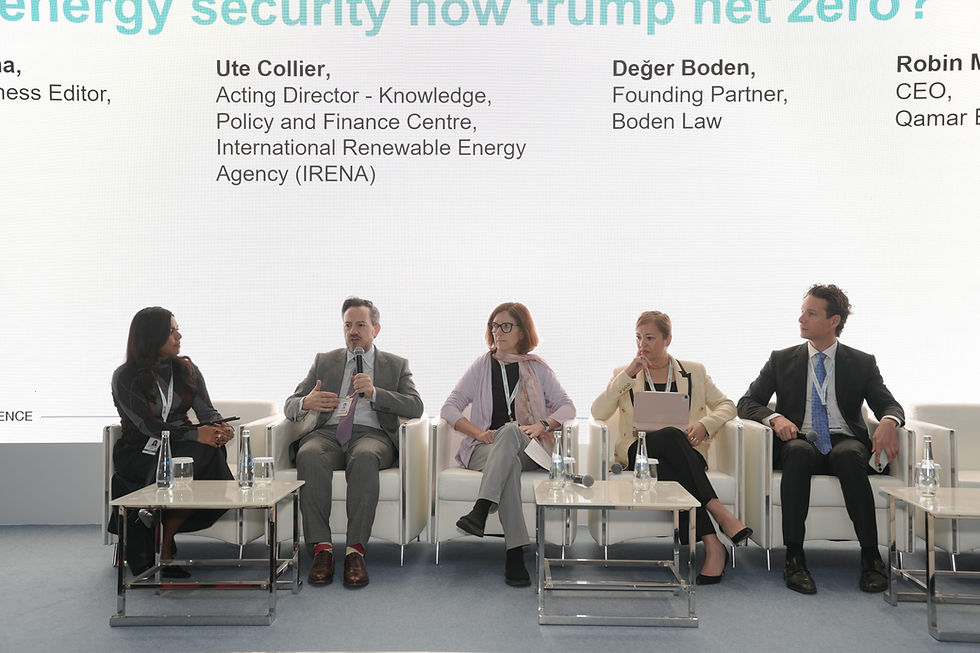New podcast: Empowering small businesses to chart the path to net zero
- Ethan Fulton

- Mar 7, 2024
- 2 min read
Updated: Apr 23, 2024
The monumental shift towards net zero emissions cannot happen without small and medium enterprises (SMEs), which represent more than 50% of employment worldwide.
Zest Associates Managing Director Jeffrey Beyer recently moderated Episode 12 of the Future Energy Insights podcast. Sponsored by the World Future Energy Summit, the series takes an in-depth look at renewable energy and sustainability topics.
Click the icon to access the episode.
In this discussion on SMEs, Beyer was joined by:
Lydia Elliott, Deputy Director of Supplier Decarbonization at the We Mean Business Coalition — a founding company behind the SME Climate Hub global initiative
Dr. Saeed Alhassan, a professor at Khalifa University who transitioned from directing the Gas Research Center to founding Manhat, a deep-tech water distillation startup
Martin Reynolds, who co-founded Zero Carbon Ventures in the UAE
A comprehensive survey of over 7,000 SMEs in the MENA region conducted by Bain & Co. and the World Economic Forum revealed a consistent set of barriers to sustainability: time, skills, knowledge, and funds. Only 7% of the surveyed enterprises are actively mapping out a transition strategy.
Alhassan noted that SMEs face difficulty in justifying investments into sustainable solutions which may result in initial financial losses before breaking even. For SMEs with small capital reserves, support mechanisms must align short term financial health with long term sustainability goals.
Some key drivers of this support will include:
Regional programs — COP28 recently established the SME Climate Hub MENA initiative to drive action in the private sector. Regional governments are also spearheading initiatives such as the Abu Dhabi Chamber of Commerce's Net Zero transition program and Oman's work with SMEs under the National Net Zero program. Such programs can change the existing stigma around measurement and detailed baseline assessments.
Climate-sustainable incentive loans — Alhassan recommended these loans as an incentive for SMEs to invest in climate-forward initiatives without painful short-term losses.
Helping firms answer the "Scope 3 question" — Enterprises create emissions not just through direct activities but through their sourcing within the value chain. Reynolds acknowledged that SMEs can significantly impact their footprints through thoughtful purchasing and procurement decisions.
This Future Energy Insights episode not only shed light on the current landscape for SMEs in the MENA region but also generated dialogue on what the roadmap to their contribution to a sustainable future looks like. The path forward involves a balanced approach, building capacity and providing time for SMEs to adapt while acknowledging the urgency of moving forward.



Comments